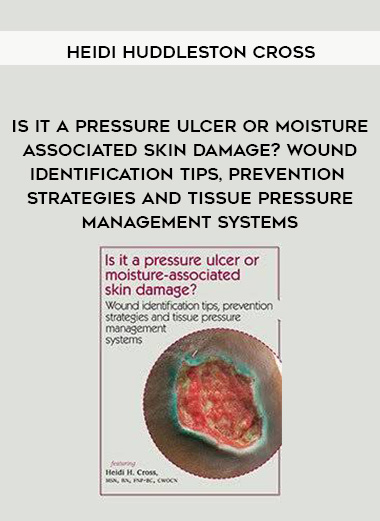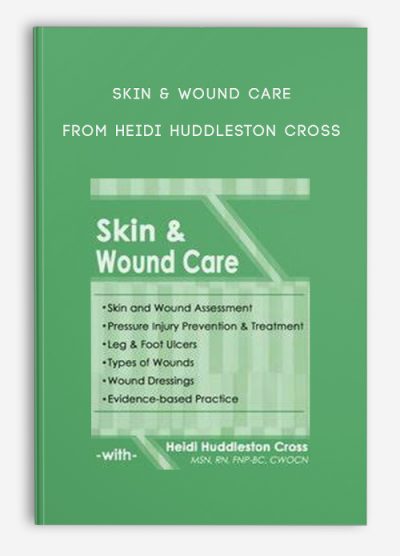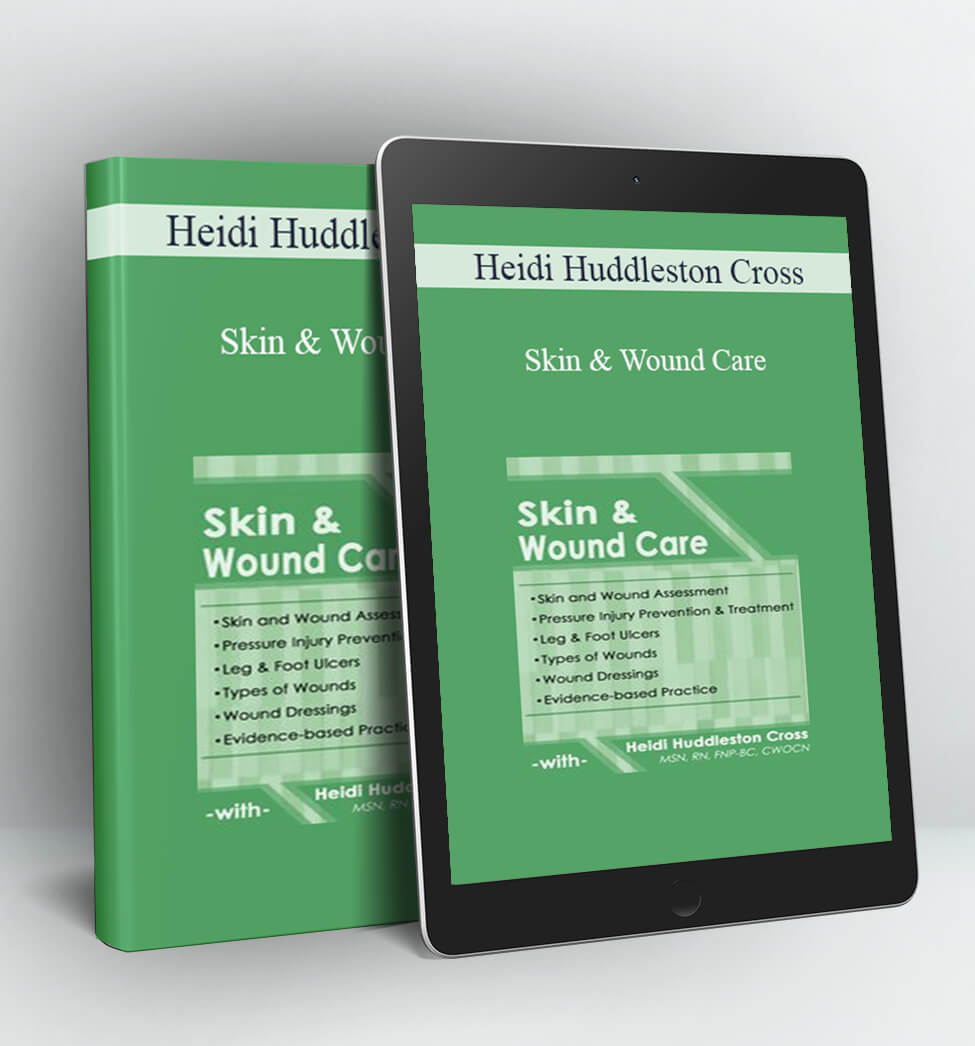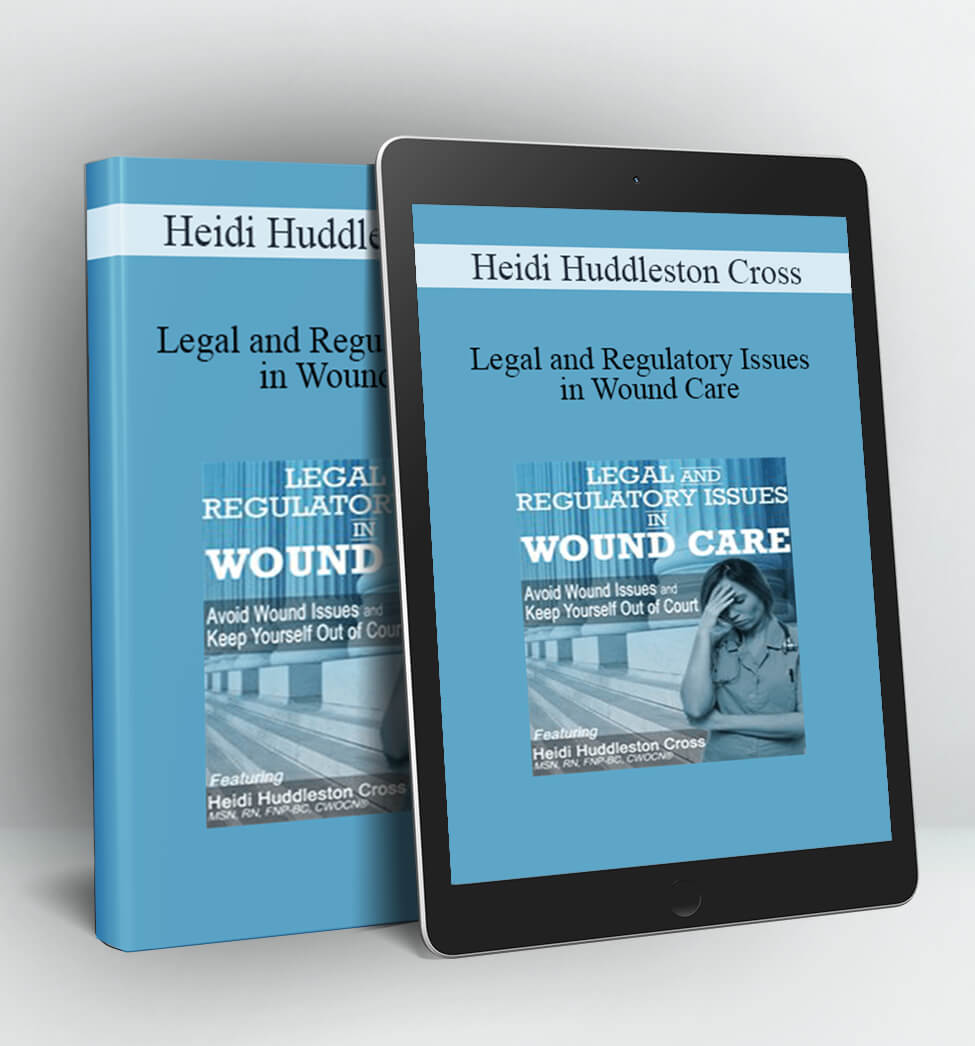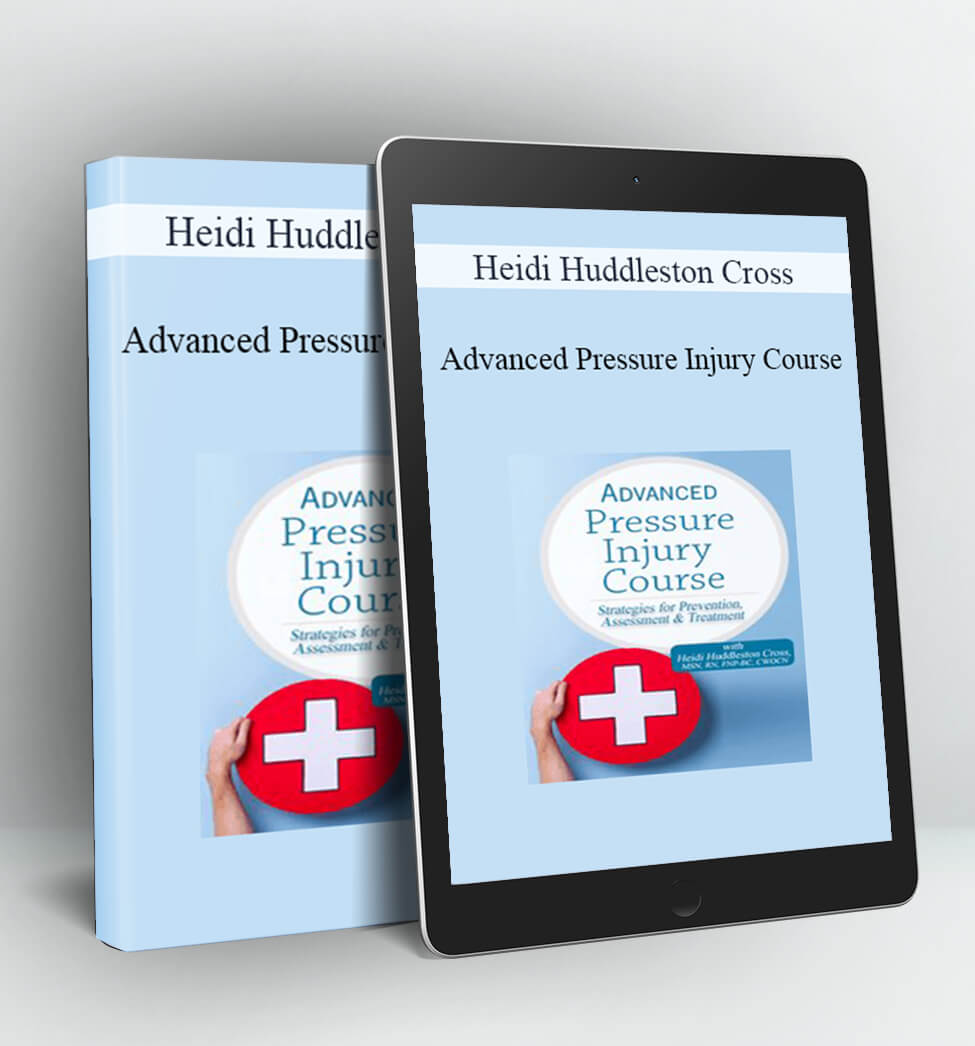LEGAL AND REGULATORY ISSUES IN WOUND CARE: AVOID WOUND ISSUES AND KEEP YOURSELF OUT OF COURT – HEIDI HUDDLESTON CROSS
Lawsuits related to wounds, and especially pressure ulcers, are increasingly common in both acute and long-term care settings, with judgments as high as $312 million in a single case. It can be terrifying to be notified that your facility has been sued, and even more so if you personally are named in a lawsuit. What can you and your facility do to protect yourselves? What do you need to know to ensure that you are meeting standards related to wound care? What assessments and documentations are necessary to stay out of court? What regulations and statutes do you need to be aware of? What measures can you take to make certain that you have the most legally-defensible wound care program?
Wound care gone badly is one of the most prevalent themes in healthcare today, in addition to being very costly. This course will provide many of the answers to help keep patients from suing, keep lawyers and regulatory bodies at bay, and hopefully keep you and your facility out of court.
OUTLINE
Introduction
- Basics of the U.S. legal system
- Why do people sue?
- Chronic wounds (especially pressure ulcers) – why are they such a hot topic?
- Negligence
- Definition of adverse events
- Standards of Care – where do we find them?
- The economic, professional, and personal impacts of litigation
Regulatory Issues and How They Affect Your Wound Care Practice
- Federal statutes and regulations
- Hospital Acquired Conditions and Never Events – can we really always avoid them?
- Those dreaded Department of Health and Joint Commission surveys
- Code of Federal Regulations – Requirements for Long-Term Care Facilities
- State Practice Acts and practicing within your scope
Assessment Essentials
- Risk assessment
- Patient assessment
- Wound assessment
- Nutrition assessment
- Mobility assessment
Legally Defensible Documentation
- What MUST be in the record to effectively defend yourself and your institution
- The 5 Cs of effective documentation
- Pitfalls to avoid
- Electronic Health Records: a boon or a bust when it comes to wound documentation?
Communication Essentials
- With the patient
- With the family
- With the physician
- Multidisciplinary involvement and communication
Sticky Situations in Wound Care: Helpful Hints to Minimize Your Legal Risk
- Pain management – Avoiding a “Pain and suffering” allegation
- Nutritional allegations – Delay or failure to provide appropriate nutritional interventions
- Policies and procedures – can make or break your defense
- Staffing levels and competency
- Wound photography – pro’s and con’s and guidelines
- Malpractice insurance – is it necessary for nurses?
Issues with Select Types of Wounds
- Pressure ulcers – avoidable versus unavoidable
- Arterial ulcers
- Diabetic ulcers
- Know the etiology: dangers in failing to correctly diagnose and treat
You Make The Call
- Case studies and scenarios
OBJECTIVES
- Explain the U.S. legal system and the current wound litigation environment.
- Describe regulatory and legal principles of wound care.
- Examine the essentials of wound assessments and legally-defensible documentation.
- Analyze necessary communications to avoid wound issues and keep yourself out of court.
- Describe how to establish a wound program that is legally defensible.
- Evaluate high-risk wound care situations that are prone to litigation.
Tag: Legal and Regulatory Issues in Wound Care: Avoid Wound Issues and Keep Yourself Out of Court – Heidi Huddleston Cross Review. Legal and Regulatory Issues in Wound Care: Avoid Wound Issues and Keep Yourself Out of Court – Heidi Huddleston Cross download. Legal and Regulatory Issues in Wound Care: Avoid Wound Issues and Keep Yourself Out of Court – Heidi Huddleston Cross discount.

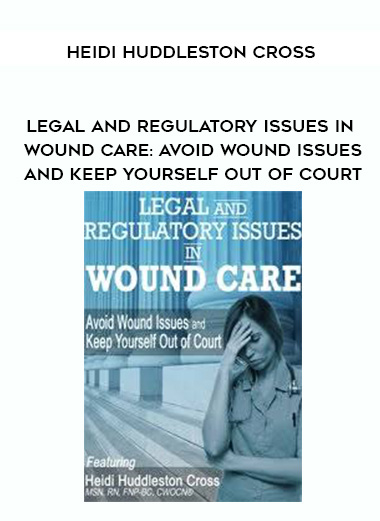

![Youtube Advanced Masterclass [2019 Edition] - Jordan Mackey](https://coursedownload.store/wp-content/uploads/2021/09/Jordan-Mackey-Youtube-Advanced-Masterclass-1-1.jpg)

